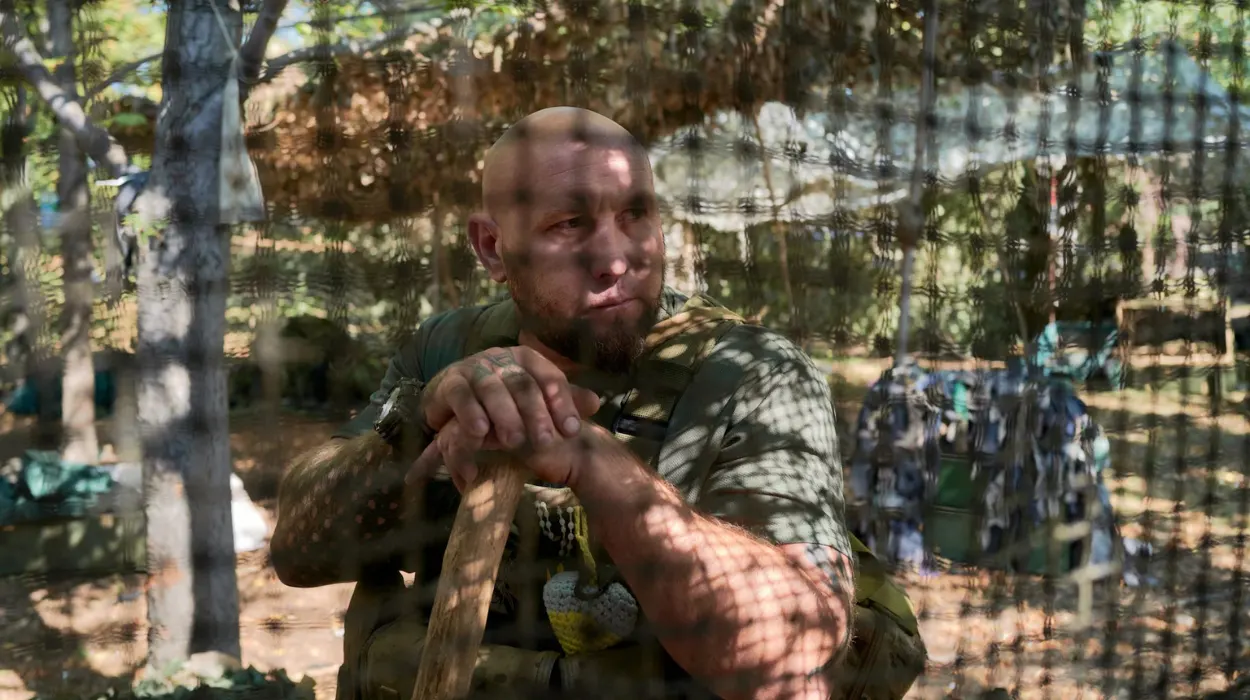Russia (Parliament Politics Magazine) – Vladimir Putin demanded Ukraine withdraw from Donetsk and offered a frontline freeze; Alaska summit ended without a ceasefire, Trump called it very successful.
As reported by The Independent, Russian President Vladimir Putin told US President Donald Trump he would halt the war if Ukraine surrendered the Donetsk region.
According to reports, he indicated he might grant Ukraine territorial concessions in Kyiv’s favour in exchange for control of the mineral-rich eastern region.
Insiders suggest Russia might grant concessions in its minor holdings in Sumy and Kharkiv, while freezing frontlines in southern Ukraine.
After the Alaska summit, Mr Trump shared Putin’s demands in a call with President Zelensky and several European leaders.
What did Putin say about his Ukraine peace talks with Trump?
Vladimir Putin told reporters he discussed possible ways to halt the Ukraine war “on a fair basis” during talks with Mr Trump. He described the meeting as “timely” and “very useful,” according to Kremlin images.
Mr Putin said,
“We have not had direct negotiations of this kind at this level for a long time. We had the opportunity to calmly and in detail reiterate our position.”
He added,
“The conversation was very frank, substantive, and, in my opinion, brings us closer to the necessary decisions.”
According to him, Moscow acknowledges the US stance on the Ukraine war and is seeking a peaceful resolution.
How did Trump brief Zelensky on Putin’s frontline proposal?
According to a source familiar with the matter, President Trump told Ukraine’s leader that Putin proposed freezing frontlines elsewhere in exchange for Kyiv withdrawing from Donetsk and Luhansk.
Mr Trump and US envoy Steve Witkoff told Zelensky that Putin insisted there could be no ceasefire, but he might pledge no new aggression.
He held a detailed call on Saturday with Zelensky and other European nations, including French president Emmanuel Macron, Italy’s Giorgia Meloni, Germany’s Friedrich Merz and the European Commission’s Ursula Von der Leyen.
Friedrich Merz’s views on US security guarantees for Ukraine
German Chancellor Friedrich Merz said on Saturday that the US is willing to participate in security guarantees for Ukraine.
After a briefing with other European leaders by Trump on his Alaska talks with Putin, Merz addressed the German public broadcaster ZDF.
Kaja Kallas’ stance on Russia and the Ukraine war
Kaja Kallas, the EU’s top diplomat, said Moscow has no plans to halt the Ukraine conflict and will continue fighting until it realises it cannot sustain the war.
She added,
“The US holds the power to force Russia to negotiate seriously” and that “the real root cause of the war is Russia’s imperialist foreign policy, not an imaginary imbalance in the European security architecture.”
What did Polish PM Tusk say about European leaders’ response to the Alaska summit?
Polish Prime Minister Donald Tusk said on Saturday that European leaders prepared a joint statement after reviewing information from Trump and considering Zelenskiy’s opinions on the Alaska talks.
He posted on X,
“The conversation among European leaders evaluating the information provided by President Trump and the outcomes of the Alaska meeting has concluded. Together with @EmmanuelMacron, @_FriedrichMerz, @Keir_Starmer, @GiorgiaMeloni, we listened to the opinions of @ZelenskyyUa and prepared a joint statement.”
Zakończyła się rozmowa europejskich liderów oceniająca informację przekazaną przez prezydenta Trumpa i efekty spotkania na Alasce. Wspólnie z @EmmanuelMacron, @_FriedrichMerz, @Keir_Starmer, @GiorgiaMeloni wysłuchaliśmy opinii @ZelenskyyUa i przygotowaliśmy wspólne oświadczenie.
— Donald Tusk (@donaldtusk) August 16, 2025
What did UK PM Sir Keir Starmer say about Trump and Ukraine progress?
Sir Keir Starmer said,
“President Trump’s efforts have brought us closer than ever before to ending Russia’s illegal war in Ukraine. His leadership in pursuit of an end to the killing should be commended.”
He added,
“I welcome the openness of the United States, alongside Europe, to provide robust security guarantees to Ukraine as part of any deal. This is important progress and will be crucial in deterring Putin from coming back for more.”
Key details about the Ukraine-Russia war
Russia attacked Ukraine on February 24, 2022, targeting major cities like Kyiv, Kharkiv, and Kherson.
The conflict followed Russia’s 2014 annexation of Crimea and support for separatists in Donbas. Putin falsely claimed Ukraine was “Nazi-run,” opposed its NATO plans, and said “denazification” was necessary.


